
CORPORATE RESPONSIBILITY AND SUSTAINABILITY







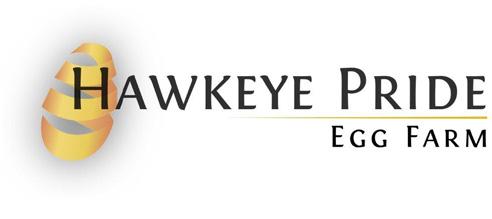



We are proud to present the second annual sustainability report for the family of individual companies managed by Versova Management Company and combined in this report under one Versova banner. Together, as one of the largest egg producers in the country, we recognize our responsibility and are dedicated to leaving a sustainable legacy for future generations.
In December 2023, we welcomed two new family farms to Versova. Oakdell Egg Farms and Morning Fresh Farms are not included in the data presented in this report but will be integrated into future reports as we collect and analyze data from those farms.
Aggregated data from the Versova-managed family of companies is shared for sustainability reporting purposes only and includes results from the following farms: Center Fresh, Centrum Valley Farms, Iowa Cage-free, Hawkeye Pride Egg Farm, Ovation Farms, Trillium Farms and Willamette Egg Farms.

TABLE OF CONTENTS: LETTERS FROM LEADERSHIP 6 HOW WE OPERATE 9 PEOPLE 10 PLANET 16 POULTRY 22 A SUSTAINABLE FUTURE 29

OUR SUSTAINABILITY COMMITMENT
Our robust values shape what we do each day, and our guiding principles focused on quality, compliance and continuous improvement are at the core of the culture of sustainability we are building within our team and our operations. We know these commitments are important not only for our business, but for the customers who rely on us to provide a safe and reliable egg supply, and for the families who enjoy eggs on their tables each day.
SUSTAINABILITY Commitment
A NOTE FROM THE PRESIDENT
The Versova-managed family of farms views sustainability as a fundamental principle deeply ingrained in our corporate culture and operations. Beyond the impactful metrics demonstrated in this report, our team’s sustainability efforts have supported our continuous growth and helped ensure another successful year.
In 2023, Versova celebrated the further expansion of our teams and farms. Opportunities to increase our cage-free egg supply and presence in the West continue to guide our strategic growth. Late in the year, we were delighted to welcome Morning Fresh Farms in Colorado and Oakdell Egg Farms in Idaho, Utah and Washington, into the Versova-managed family of farms.

While we have achieved significant milestones over the past year, it’s important to acknowledge the barriers we encountered. The ongoing challenge of Highly Pathogenic Avian Influenza (HPAI) impacted two separate farm sites within our family of companies in 2023. This affected our team, operations, and sustainability outcomes. Due to the quick action and dedication of our teams, we sustained operations with minimal disruption, which ensured job security for our employees and maintained the availability of safe, high-quality eggs for our customers.
Our success as a company is linked to our unwavering commitment to environmental stewardship, social responsibility and sustainable business practices. We also know that we must consistently maintain our high standards for egg safety, hen welfare and the care of our team. Over the past year, we have significantly advanced our sustainability agenda, guided by a steadfast commitment to transparency, collaboration and continuous improvement. I am enthusiastic about the future of our business and the ideas and innovations being implemented as we move forward.
This sustainability report showcases the measurable initiatives we’re putting into practice and highlights actionable efforts to improve upon in the future. We firmly believe that as one of the nation’s leaders in egg production, we have a profound responsibility to drive positive change and pave the way for a more sustainable future.
 JT Dean President
JT Dean President
SUSTAINABILITY Letters From Leadership
6
A MESSAGE FROM THE DIRECTOR OF SUSTAINABILITY
Although our farms are united through the Versova family of companies, each one is unique in its geographic location, operations and sustainability journey. While some of our farms have been implementing innovative practices for years to gauge and minimize our environmental impact, others are in earlier stages. However, it is consistent across all our farms to do what’s right to best care for our people, planet and poultry.
Versova’s sustainability program grew in 2023. Sustainability isn’t a one-size-fits all model – it encompasses different departments across farm operations and requires continuous commitment and accountability from our team members. As I visited our farms throughout the year, I was able to validate data and recognize operational differences at each farm.

Through collaboration, we have made significant strides toward building a comprehensive data collection system that accurately measures our sustainability efforts. Our system maps individual sources of data across farms to consolidate into one landing location for sustainability measurement. By using the sustainability system, we are viewing the information from a new perspective. In using real-time data, we can make informed decisions and adjust as needed. Measurement is only useful with data integrity and valid sources of information, and Versova’s new sustainability database provides an efficient, accurate method of information gathering across our operations, which further supports our goal of continuous improvement within our sustainable practices.
I’m proud of our Versova team members who worked together this past year to advance our sustainability agenda – and we are not finished yet. We remain dedicated to driving positive change to minimize our environmental footprint, fostering a diverse and inclusive workplace and upholding the highest standards of animal welfare.
 Emily Battilega Director of Sustainability
Emily Battilega Director of Sustainability
SUSTAINABILITY Letters From Leadership
7
A MESSAGE FROM THE CHIEF OPERATING OFFICER
Versova’s growth and success can be attributed to one of our guiding principles: continuous improvement.
When Versova committed to sustainability, we knew the only path to progress was authenticity. To move forward, we needed to know where we were starting. In 2022, our team was intentional in gathering data, and auditing our sustainability efforts to establish our baseline. While we were pleased with some of our results, we identified tremendous opportunities for improvement across all aspects of our sustainability strategy.
Our team is using these real-time metrics in innovative ways, such as the new barn construction project at Ovation Farms. Data captured is used to improve the management of each new hen house and flock that comes online. The data also informs regular meetings among our cage-free farms to evaluate flock livability and share best practices for advancement.

Organizations can “talk” sustainability or “do” sustainability. Versova has chosen to “do” sustainability. Armed with this operating data, we are making dozens of decisions each day that enhance resource efficiency and drive innovation across our operations, each contributing to the development of Versova’s sustainability programs.

SUSTAINABILITY Letters From Leadership
8
HOW WE OPERATE
OUR GUIDING PRINCIPLES AND CORE VALUES
Our guiding principles and core values are woven into every aspect of our business, empowering our team members to live by them every day. They are the foundation of our sustainability program and help direct our actions.
SUSTAINABILITY How We Operate 9
PEOPLE

PEOPLE
Team members at Versova are pivotal to our success –it is essential to develop and grow our team while creating a welcoming work environment where everyone feels secure and is safe.
OUR TEAM
Caring for our team and providing a positive workplace with opportunities for professional advancement is imperative. We are a family of companies and a company of families – family is at the core of everything we do.
Versova-managed farms employ 1,387 people representing many ethnicities. Team members work in a variety of live production, egg processing, maintenance, transportation, feed mill operations, management and administrative positions on our farms.
Total Number of Employees = 1,387
Our human resources team continues to place heavy emphasis on employee retention. We prioritize our employees’ experience at work and want to ensure all employees enjoy coming to work every day.


In 2023, WILLAMETTE EGG FARMS had the LOWEST TURNOVER of Versova-managed farm locations and REDUCED ITS TURNOVER RATE BY 12%

PEOPLE Our Team
Female Employees = 404 (29.1%) Male Employees = 980 (70.7%) Not Specified = 3 (0.2%)
11
SUPPORTING OUR TEAM
Rapid and sustained growth in our business means the long-term outlook for careers is strong, and our leaders are focused on continuing to position our farms as employers of choice. In addition to steady, consistent hours and competitive wages, we provide an inclusive workplace and offer an extensive benefits package to our employees, which includes:
• Tuition reimbursement
• Paid time off and paid holidays
• 401(k) retirement plan with company match
• Company-provided health insurance
• Professional development opportunities
• Employee resource groups
• Extended maternity and paternity leave
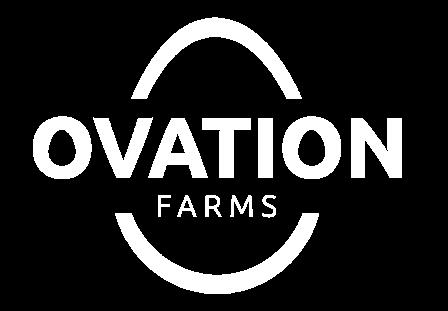
Employee wellness remains a top priority as we expand and remodel our farms. At Ovation Farms in Iowa, our new cage-free housing construction led to a modernized lunchroom.
Employees now enjoy complimentary meals prepared by a trained chef, with ample space and a fully equipped industrialstyle kitchen.


CELEBRATING OUR TEAM
Recognition matters. We want every team member to know they are seen and to feel appreciated. To recognize our employees, we host a week-long employee appreciation celebration, honoring the accomplishments and tenure of our team. In addition, our farm teams celebrate throughout the year with spontaneous events at each farm. Our leadership team meets annually in person to network, learn and grow.


PEOPLE Our Team
12
TEAM SAFETY
As a core value of Versova, team safety encompasses more than efficiency and productivity, it is about assuring our team members return home safely every day.
Versova-managed farms are committed to maintaining a safe work environment, providing all necessary personal protective equipment (PPE) and tools to team members, conducting regular and routine safety trainings, ensuring all equipment and vehicles are properly and routinely maintained, and promptly responding to unsafe conditions or behaviors. We value the competency level of each employee and prioritize proper training ahead of new job responsibilities or tasks to ensure our team members can safely and confidently fulfill what is asked of them.
Our safety performance is evaluated using several metrics including DART (days away restricted time) and TRIR (total recordable injury rate) metrics.
The DART rate provides insight into the severity of work-related injuries and illnesses that cause employees to miss work, require restricted duties, or result in a job transfer. The TRIR rate is a comprehensive measure that accounts for the total number of recordable incidents within a specific timeframe per 100 full-time employees and helps evaluate the overall safety performance of a company.
While combined our farms remain below the industry average in our TRIR Rate, we fell short of hitting our DART Rate goals. Our Safety Team is evaluating training opportunities for future improvements.

Our Grassroots Safety Committees discuss and implement system-wide solutions to everyday safety concerns, which allows for continual awareness and accountability with our employees.
Brad Walls, Director of Safety

We continue to build a culture of safety through education and communication. Our safety team is dedicated to the safety of all team members regardless of role or location and assures team members are properly trained. In 2023, Versova implemented a new approach to evaluating safety by refreshing Grassroots Safety Committees at each location. Through these safety meetings, all site leaders and managers, with the safety team, review site accidents, violations, and other issues, allowing for open communication and continuous learning of what needs to be investigated, reviewed, and acted upon.
Brad Walls is the Director of Safety for Versova. Brad is responsible for guiding the safety team at each farm location to work with operations to maintain a safe work environment for team members. He also oversees the farms’ Grassroots Safety Committees – where all employees can be directly involved and engaged with the safety processes on the farms. These committees are important because each farm presents unique situations, and the committees involve on-site team members in decision-making, creating employee engagement and accountability.
PEOPLE Safety
DART Rate TRIR Rate 2023 4.6 5.6 Industry Avg. 3.6 6
13
EGG SAFETY
Assuring the safety and quality of the foods we produce at Versova-managed farms is one of the most important commitments we can make to our customers and consumers – and it is essential to maintaining their trust in us as a food producer.
Our farms participate in several national quality assurance programs and implement on-farm food safety practices to ensure the quality and safety of our eggs and egg products.
ON VERSOVA-MANAGED FARMS, WE:
• Follow U.S. Food and Drug Administration (FDA) Egg Safety Final Rule regulations
• Implement comprehensive on-farm biosecurity programs
• Practice Salmonella Enteritidis (SE) prevention methods
• Implement Hazard Analysis and Critical Control Points (HACCP) programs
• Maintain Safe Quality Food (SQF) Certification for egg grading locations
• Participate in USDA verification programs specific to eggs and egg products
• Obtain regular third-party audits

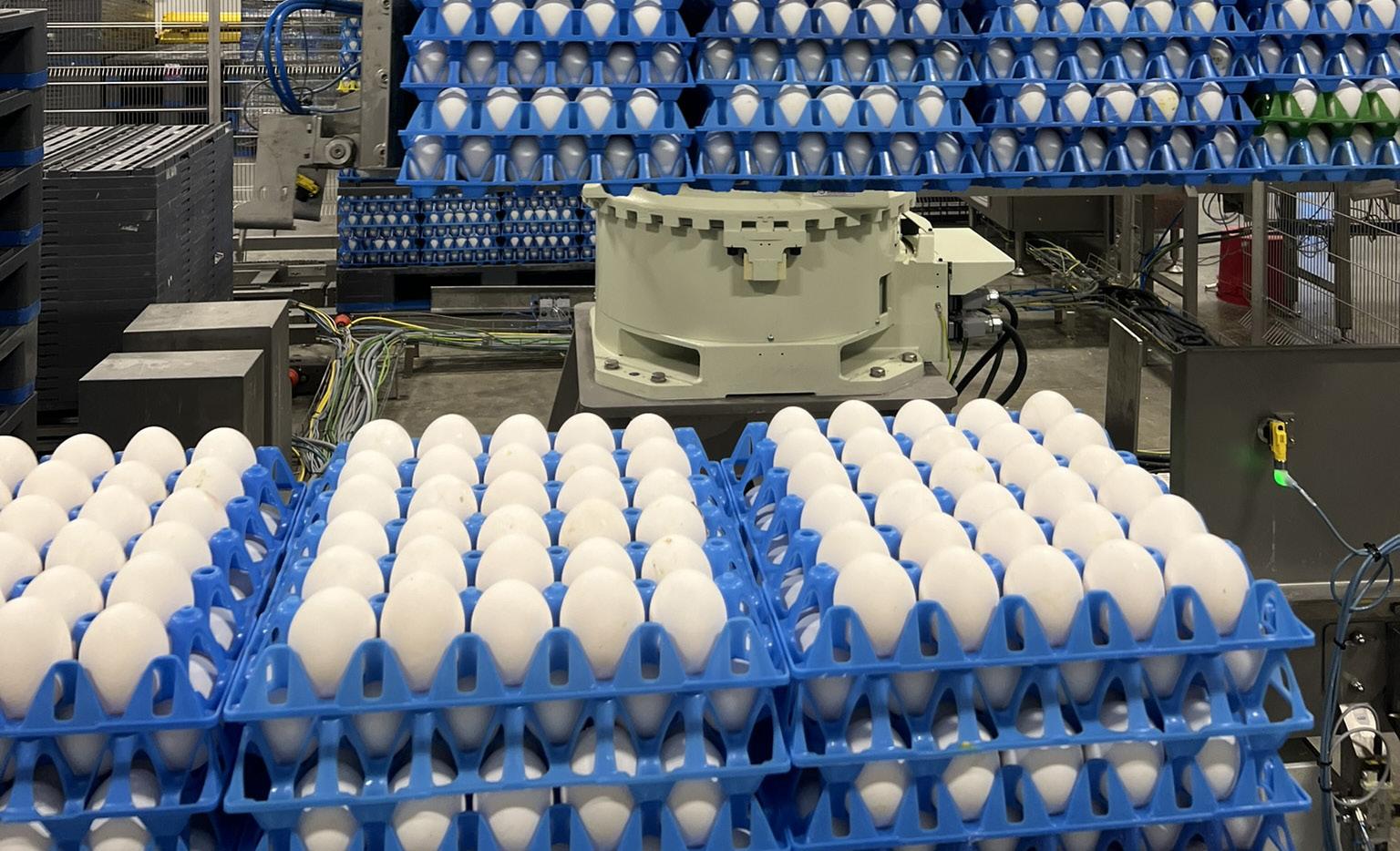
PEOPLE Egg Safety 14
VERSOVA COMMUNITY FOUNDATION
To better enable us to give back to the places where we live and work, we are proud to have launched the Versova Community Foundation in 2023. The Versova Community Foundation supports the communities in the states where Versova farms operate by raising funds and providing grants to registered not-for-profit organizations. The Foundation is guided by four philanthropic pillars that align with Versova’s mission and purpose. The Foundation allows Versova to intentionally invest in community resources and support valued causes.


Matt Dean, Chief Financial Officer

As Versova’s Chief Financial Officer, Matt Dean oversees all administrative and financial functions for Versova’s family of companies. Matt works with various internal department leaders, as well as key external constituents, to support Versova’s sustainability goals. His work includes weighing the costs and benefits of each sustainability initiative and providing detailed data to inform decisions on ESG efforts. By maintaining financial discipline, Matt ensures Versova can continue to be sustainable in all other facets of the business. Matt also serves as Treasurer for the Versova Community Foundation, overseeing the companies’ philanthropic priorities and community impact at the local and national level.

We established the Versova Community Foundation to provide organization and structure to our existing charitable efforts and to ensure we are maximizing each donation’s impact within our communities. Our four pillars of giving guide our decision making around grants and donations, and committees at both the national and local level collect donation requests and decide where to deploy the Foundation’s funds. This process creates a sustainable, streamlined system of philanthropy. To complement our financial contributions with additional local support, Foundation committees also identify and plan charitable events in our operating communities where our team members can choose to donate their time.
PEOPLE Community Foundation
15
HOW WE GIVE BACK
In 2023 we donated 2.3 MILLION EGGS to local food pantries and community events across the country.
WE SUPPORT YOUTH AGRICULTURAL ORGANIZATIONS
$ 114,000
Last year’s inaugural event was the 2023 Center Fresh Golf Outing. The Foundation raised and donated to Promise Community Health Center in Iowa to support the construction of the health center’s new mental health wing.
We have raised over for various charities since the inception of the Golf Outing in 2016. $ 500,000
including 4-H and FFA in our farm communities by making monetary donations, providing eggs for poultry judging events, and volunteering to judge local events, as well as coaching students for contests.
As one of the country’s leading food producers, we make hunger relief a focal point of our charitable giving efforts. By partnering with local, national and international hunger relief organizations, Versova has helped fight food insecurity in our communities as well as supporting those across the country and the globe. Our international efforts include hunger relief programs and agriculture research and education in Honduras, Mozambique, Zambia, Zimbabwe, and South Africa. Working in collaboration with partners like Feeding America, Cracking Hunger, International Egg Foundation and Heart for Africa, Versova has helped individuals across the world gain access to nutritious food.
Among our teams, we are fortunate to have volunteer safety team members who are trained emergency medical technicians (EMT) and volunteer firefighters.
Versova Management’s leaders hold various volunteer roles with egg, agriculture and food-related industry organizations, including:
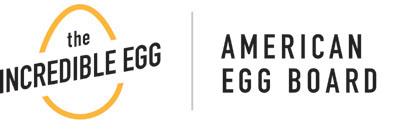












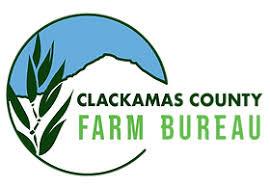
PEOPLE How We Give Back
16
PLANET

PLANET
As stewards of the land, we recognize our actions today directly impact the overall health of our planet. It’s no small feat to produce nearly 8.8 billion eggs annually to help feed the world. As our farms’ operations grow with the increased demand in our food supply, we are conscientious of our footprint and deliberate in our approach toward the long-term preservation of the land, air and water on and around our farms. Our farms are nestled in the communities where our families and employees live, work and play. It is our shared responsibility to identify and implement practices that will protect the environment around us.
We have embraced innovative techniques and technologies to sustain the environment as we navigate the complexities of modern egg production. From energy and water conservation to responsible land use and proper litter management, we are dedicated to continuously improving our farms’ practices and setting new benchmarks for sustainable egg farming.
SETTING THE STAGE: AN INDUSTRY PERSPECTIVE
In 2023, the Egg Industry Center, American Egg Board, and United Egg Producers published a lifecycle assessment (LCA) that evaluated the egg industry from 2010 to 2019. This LCA uses information supplied by egg producers to evaluate environmental impacts. Aggregated data broke down drivers of greenhouse gas (GHG) emissions, which concluded that feed contributed the majority of the industry’s GHG emissions, followed by litter management, pullet production and energy usage. These categories of GHG emissions can be used to focus our continuous improvement efforts to influence the most change.
U.S. EGG INDUSTRY RELATIVE CONTRIBUTION OF KEY SUPPLY CHAIN ELEMENTS TO GREENHOUSE GAS EMISSIONS (CO2 EQUIVALENT)
HEN FEED REQUIRED TO PRODUCE ONE TON OF EGGS IN CONVENTIONAL AND CAGE-FREE PRODUCTION SYSTEMS
Conventional Cage-free PRODUCTION SYSTEM
The most recent LCA also evaluated the differences between caged and cage-free production systems. The data demonstrated that, on average, cage-free birds need 13% more feed than those raised in conventional systems to produce the same number of eggs. Since 2019, the egg industry has developed or converted many additional cagefree farms and improving feed efficiency has been a top priority.

AVERAGE HEN-DAY:
the average of the number of birds on hand daily accumulated throughout the year. This shows the population throughout the year rather than point-in-time comparison. It gives a more accurate view of our combined operations.
PLANET Setting the Stage
0.0 0.5 1.0 1.5 2.0 2.5
FEED
(TON)
PULLETS GHG HOTSPOTS 2019 Energy 13% Feed 61% Manure management 14% Hatcheries 12%
Pullet production 9% Energy use 5% Feed 70% Manure management 16% LAYERS GHG HOTSPOTS 2019 18
ENERGY
Energy consumption is not only important for environmental sustainability but also for economic sustainability. Energy usage is a necessity for egg production while being one of the costliest elements.
In 2023, our farms used a combined 161,018,295 kWh, which is a year-over-year increase of 15% compared to 2022. The increase in usage can be primarily attributed to increased usage of fans to cool our hens during an unusually warm summer. This was the 10th warmest year on record for Iowa, with a 2.2 degree increase in average annual temperature. Animal welfare and keeping our hens comfortable year-round are utmost priorities.
20,000,000
5,000,000 10,000,000 15,000,000
ENERGY USE BY MONTH
4.5 DOZEN EGGS produced per kilowatt hour on average for all farms in 2023
New cage-free construction at OVATION and WILLAMETTE EGG FARMS showed a year-over-year decrease of 14% electricity usage per bird.
JanuaryFebruaryMarch AprilMayJuneJulyAugustSeptemberOctoberNovemberDecember
We continue to convert farms to more energy-efficient operations through the installation of LED lighting and energy-efficient equipment at our facilities. We keep energy conservation in mind as new sites are being designed and constructed. As we bring new farms to our family of companies, we conduct energy assessments to identify opportunities for energy savings.

PLANET Energy
LAND USE
Land is a precious resource in egg production. Our primary source of GHG emissions stems from the reliance on cropland to source nutritious feed ingredients for our hens.
While our farms have a smaller geographic footprint compared to other forms of animal agriculture, we recognize the significant land required to grow the corn and soy used in our hens’ feed. In total, we require nearly 430,000 acres of land to produce the amount of corn and soybeans needed to feed our farms’ growing flocks. That equates to 1,710 dozen eggs produced per acre of land used.
We also have built farms with reduced transportation of feed in mind. At our Center Fresh Group, Ovation Farms, Hawkeye Pride, and Willamette Egg Farms Moses Lake operations, we have feed conveyors to transport feed directly to poultry houses, thus eliminating truck transportation.
We closely monitor feed consumption as a key indicator of hen health. Our use of exogenous enzymes in the feed allows the hens to better utilize the nutrients provided. The use of phytase and carbohydrate enzymes allowes hens to break down the fiber in their feed and reduce the excretion of phosphorus in the litter. Our team evaluates alternative ingredients on a routine basis. We’ve incorporated corn oil, a byproduct of ethanol production, into our hens’ diets at our Iowa farms and in Moses Lake, Washington. Corn oil provides fat and calories to the diet and by using a byproduct feed, we can limit the use of other ingredients that fill this purpose.
This year, we fed 7% more birds than last year on a hen-day basis, which caused an 8% increase in corn and 5% increase in soybean meal.
Nearly 100% of our corn is supplied from farmers or grain elevators within a 50-mile radius of our feed mills in Iowa and Ohio.



177,359 ACRES OF CORN and
251,586 ACRES OF SOY were needed for all farms in 2023
 Mike Keefer, Vice President of Grain Merchandising
Mike Keefer, Vice President of Grain Merchandising
When it comes to grain merchandising, sustainability and financial efficiency go hand in hand. Our company-owned feed mills strive to source ingredients from local farmers to limit the financial and environmental costs of long-distance freight. Nearly 100% of our corn is supplied from farmers or grain elevators within a 50-mile radius of our feed mills in Iowa and Ohio. All our conventional soybean meal comes from U.S. producers, most within a 100-mile radius of our farms.
In addition, we partner with truckers and other participants in the commodity supply chain to ensure trucks delivering ingredients to our mills are maximizing their load capacities both inbound and outbound. Cultivating these relationships supports our community, provides a reliable supply of feed ingredients, and reduces costs.
PLANET Land
20
BIOSECURITY AND DISEASE PREVENTION
Robust biosecurity measures are the cornerstone of on-farm disease prevention. With the continuation of the global outbreak of Highly Pathogenic Avian Influenza (HPAI) and reemergence of other devastating diseases in poultry, our biosecurity practices remain increasingly important at every farm location.
Our team ensures our flocks have a lower risk of disease and their health is protected by mitigating biosecurity hazards and providing ongoing training in disease prevention protocols.
Our farms follow strict biosecurity practices. Each farm may vary by the equipment available, but practices include:
• Restricting barn access to essential personnel
• Requiring essential personnel to shower in and out, and use dedicated clothing inside the barn
• Prohibiting employees from having birds or swine at their place of residence
• Limiting employee travel between multiple sites each day
• Requiring all trucks to go through wheel washes upon entering farm-site where installed
BIOSECURITY ROOM UPGRADES
As we remodel or expand farms, maintaining robust biosecurity measures remains a top priority. Our state-of-the-art biosecurity rooms are designed to protect hens by minimizing the risk of disease introduction from workers, vehicles, equipment, or visitors. Poultry caretakers follow a strict procedure upon entry, including showering, changing into companyprovided clothing and footwear, and then showering again before leaving.
With up to 16 shower rooms, these biosecurity rooms prioritize cleanliness and employee safety and comfort, including features such as heated floors for colder seasons.

PLANET Biosecurity
21
WATER USE AND QUALITY
We prioritize ensuring ample water access to support our hens’ health and well-being. Our dedicated flock caretakers conduct daily inspections of poultry barns to identify and address any potential water system leaks.
Our hens reside in temperature-controlled facilities, which help to mitigate extreme conditions such as heat during summer months. While we may observe marginal upticks in water consumption on hotter days, overall demand remains consistent.
We are diligently monitoring and actively implementing measures to reduce water usage across our processing facilities. For example, a common practice to mitigate waste is to recycle egg wash water and land-apply as crop irrigation at Versova-managed farms.
LITTER
WATER USE BY MONTH
JanuaryFebruary March April May June JulyAugustSeptemberOctoberNovemberDecember
Flock dynamics throughout the year will also impact data.
At Versova-managed farms, we take pride in transforming poultry litter into a cost-effective and environmentally friendly alternative to synthetic fertilizers. In the past year, our farms sold 582,502 tons of poultry litter to local farmers.
Through our manure management programs, manure is quickly and efficiently removed from hen houses and stored while it dries, before recycling the manure as nutrient-dense fertilizer.
We then conduct thorough nutrient analyses of the manure to ensure accurate data for our litter customers. This enables farmers to precisely apply the litter on their fields, tailored to the specific nutrient requirements of their crops.

PLANET Water
1.18 DOZEN EGGS for every gallon of water consumed
0
Gallons 10,000,000 20,000,000 30,000,000 40,000,000 50,000,000 60,000,000 70,000,000 80,000,000
HENS AT END OF LIFE
At our Iowa and Ohio locations, we partner with a protein recycling company that specializes in the humane handling of poultry. Whenever possible, spent hens are recycled into pet food ingredients, compost, or another value-added product when at the end of their production. By using a specialized process, our hens can be repurposed rather than being disposed.
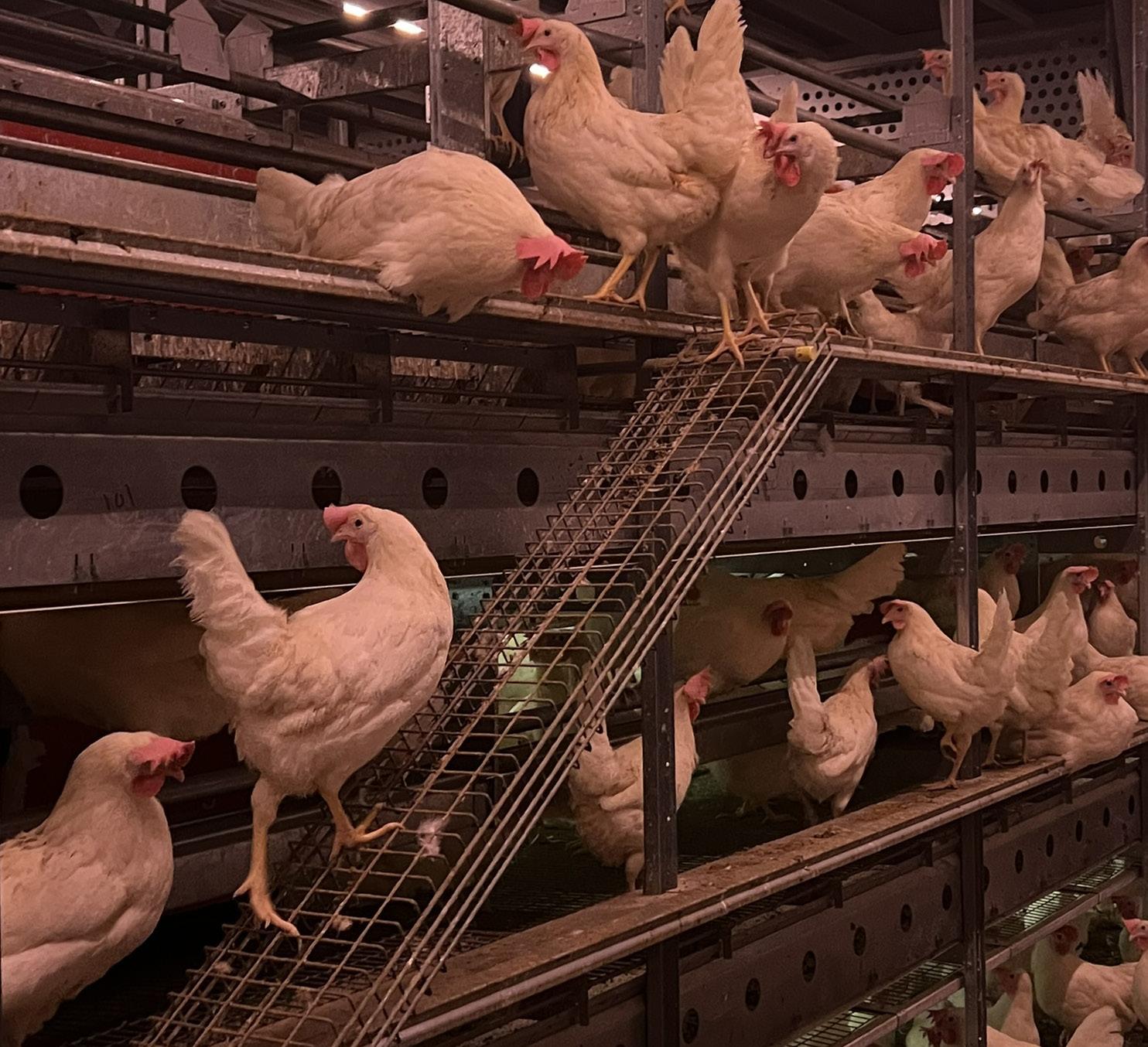
THE METRICS BEING EVALUATED INCLUDE:
Feed consumption
First week mortality rate
Floor eggs
Employee safety
rates by layer house
Employee hours
Number of employees
Egg production
Water consumption
Energy use
Livability
Peak performance
OVATION CASE STUDY
At Ovation Farms in Thompson, Iowa, we are conducting an ongoing case study to compare sustainability metrics across two different cage-free layer housing styles. We have older-style barns that have been in place since Versova acquired the farm and newer cage-free barns we have worked with the equipment manufacturer to develop. Our goal is to review how we utilize our resources most efficiently by evaluating the data set for the life of several flocks.
While the data collection is ongoing, we have begun seeing significant efficiency improvements, especially with labor demands. The newly developed facilities use half the labor hours compared to the older-style housing. The design of the new buildings makes it easier for our poultry caretakers to inspect the flocks and complete their daily tasks. Feed is transported through a conveyor directly to the chicken house, eliminating the need for transportation.

Another improvement has been in egg collection. Over the first 25 weeks of age, the newly constructed cagefree chicken houses produced an average of 8% more eggs using similar inputs of feed, water, and electricity as the previous design. These newly constructed houses have strategically placed nest boxes that allow us to gather more eggs in the hen houses and reduce the number of eggs being broken before reaching the processing plant.
PLANET Ovation Case Study
POULTRY

POULTRY
Ensuring the health and well-being of our flocks is fundamental to the success and integrity of our farm operations. From comfortable living conditions to access to nutritious food, clean water, and veterinary care, we prioritize the well-being of our flocks at every stage of their lives.
We accomplish this through rigorous monitoring and testing, third-party programs and audits, and ongoing training for our teams. We uphold the highest standards of animal welfare across our farms, continually striving to provide the best care possible for our hens.
ANIMAL HEALTH AND WELFARE
The health and well-being of the hens in our care is our primary responsibility. Hens on Versova’s farms live in temperature-controlled barns, protected from predators and disease, with constant access to fresh, clean food and water. Flocks are monitored throughout the day by animal care teams and promptly treated by on-staff veterinarians when health concerns arise.
CONTINUOUS DEDICATION TO COMPLIANCE
As regulatory landscapes evolve, so does our commitment to compliance at Versova-managed farms. Our compliance team has expanded and adapted to ensure we meet and exceed regulatory requirements, setting new benchmarks for industry standards.
At every Versova-managed operation, dedicated compliance personnel work with government and regulatory bodies to implement national food safety programs and refine policies and procedures. This proactive approach ensures adherence to existing regulations and drives continuous improvement initiatives, propelling us to maintain and surpass compliance industry standards.
 Ashley Singh, Director of Compliance
Ashley Singh, Director of Compliance
As Director of Compliance, Ashley leads the food safety, quality assurance, animal welfare and environmental compliance efforts at Versova-managed farms. She is responsible for understanding all applicable regulations and standards that apply to Versova facilities, which guide operational compliance. The compliance team oversees environmental programs, including manure management and water quality, which directly impact our sustainability practices.



ADHERING TO INDUSTRY STANDARDS OF EXCELLENCE
Our compliance team diligently captures, trends, and assesses data generated from onsite practices, which are used to guide Versova’s sustainability initiatives. By blending data with observations, we work collaboratively to make decisions aimed at allocating resources efficiently and continuously improving animal welfare, environmental compliance, and egg safety programs.
Versova-managed shell egg farms operate under the United Egg Producers Certified Animal Welfare Program, which sets some of the strictest industry standards for hen health and well-being. In addition, our cage-free flocks operate under the American Humane Certified Program or Humane Farm Animal Care programs. Our Oregon and Utah farms are also USDA Certified Organic and comply with USDA’s federal standards for organically produced agricultural products. All programs fulfill equally demanding requirements based on specific housing and production systems. Our on-staff veterinarians oversee the company’s stringent hen health and well-being programs.

POULTRY Health and Welfare
25
FEED AND NUTRITION
TO PRODUCE HIGH-QUALITY EGGS, OUR HENS REQUIRE HIGH-QUALITY GRAINS AND FEEDSTUFFS.
At Versova, our dedicated feed and nutrition team is committed to maximizing the nutritional value of our flocks’ diets while promoting sustainable practices.
We enhance feed efficiency and modify nutrient intake to fit the specific needs of hens at various stages of production. This approach provides optimal health and productivity and minimizes feed wastage.
In 2023, it took an average of 3.36 lbs. of feed to produce a dozen eggs. Both conventional and cage-free flocks improved feed conversion compared to 2022 averages. Our farms’ average case weight for all flocks, or weight of 30 dozen eggs, held steady in 2022 and 2023 at 48.6 lbs. This is a testament to our attention to flock nutrition.
To advance our sustainable hen nutrition efforts, the team has implemented ingredient and feed testing at the Versova Innovation Center in Ames, Iowa, which allows further tracking of nutrient levels of ingredients to formulate each diet more precisely.
HEN LIVABILITY

Keeping our birds healthy and safe is a top priority, and the flock's livability rate and reduction of daily mortality is an important part of hen care. To streamline a company-wide approach in this area, team members are investigating the root cause of mortality collaboratively across farms and geographic areas through weekly calls where team members share best practices, past experiences, ideas for continuous improvement and call on a team of avian housing experts for further discussion. The teams are utilizing data from these calls to evaluate ideas and analyze effectiveness.

POULTRY Feed and Nutrition
HEN HOUSING
Production methods and hen housing styles vary among our farms. Our hens live in a variety of environments, including traditional, cage-free, and organic housing. Regardless of the type of house they live in, our hens are given the same excellent care, including proper ventilation and comfortable temperatures, along with constant access to fresh food and water.
Our intentional and strategic cage-free growth prepares us for changing state laws and evolving customer and consumer demands. By investing in our cage-free operations, we are living up to our guiding principles of continuous improvement, execution, and quality and compliance.
OUR CAGE-FREE PRODUCTION AND EXPANSION
We are proud to have invested more than $750 million in the expansion and conversion of our cage-free facilities.
Versova is committed to being a leader in the expansion of cage-free production to meet the needs of customers and consumers. Our transitions align with our three main pillars of sustainability:
PEOPLE: Facilities are designed to provide a safe working environment for our team and to enhance their workplace experience.
PLANET: Barns are equipped with energy-efficient lighting and ventilation motors. We are also selecting our equipment, feed and water systems to use land and water resources efficiently.
POULTRY: Aviary equipment, ventilation, feed, and water delivery systems are designed to meet or exceed the expectations of our certification entities and keep our hens healthy.
Currently, Versova-managed farms house more than 7.9 million cage-free hens. Twenty-four percent of our total egg production is cage-free.
 Josh Warkentin, Director of Capital Projects
Josh Warkentin, Director of Capital Projects
As the construction project manager, Josh oversees the cage-free project expansion across Versova-managed farms. With several projects occurring simultaneously, the aggressive construction schedule ensures our farms are on track with meeting customer demands and adhering to state regulatory requirements. Throughout the cage-free conversion process, Josh works closely with the animal care team to keep animal welfare a top priority in new barns.
As we are converting our farms to cage-free, we are learning and adapting each site. We are not just taking the manufacturer model but working with them hand-in-hand on improvements that benefit our flocks. We use data from other projects to make informed decisions for future projects and to refine our design.
POULTRY Hen Housing
27
EGG PRODUCTION
One important aspect of sustainability is financial sustainability. Egg collection is one of the most important metrics to evaluate to ensure we are staying viable as a company. This year, our farms produced more than 8.8 billion eggs to feed families across the country. Both cage-free and conventional flocks exceeded the genetic standard for production for the breeds we use.
This responsibility comes with the recognition that producing this high-quality, outstanding value protein source allows us to take a leadership role in protecting our planet, caring for our hens and being an employer of choice.
Average lay percentage for conventional flocks
85.2%
Average lay percentage for cage-free flocks
86.2%
These figures represent collected eggs sent to processing. It is worth noting that our cage-free flocks were not impacted by HPAI in 2023. As we evaluate our cage-free conversions, it is positive to see similar rates of egg recovery in both conventional and cage-free.

POULTRY Egg Production 28
A SUSTAINABLE FUTURE
The Versova-managed family of companies is committed to continuous sustainability improvement and leveraging innovative technology to enhance sustainability outcomes and reduce our farms’ environmental impact.
We are continuing to pursue solutions to address our most challenging farm-based issues, while also creating additional revenue streams and rethinking and repurposing waste as a valued resource. In doing so, we have set a higher bar for our sustainability practices.
With the implementation of a centralized data system in 2024, our operations team members will be armed with real-time information for decision-making, and we are developing monthly scorecards to evaluate continuous improvement.
As it is the responsible thing to do for our hens, employees, customers, and business, we continue to seek out opportunities to advance our thinking and our programs, and we will enhance practices on our farms as needed to ensure a more sustainable future.
 Ross Dean, Senior Vice President of Sales
Ross Dean, Senior Vice President of Sales
As the Senior Vice President of Sales, Ross Dean is responsible for overseeing all customer development and relationships. The sales and marketing team supports Versova’s business continuity in the most direct way, by working with customers to provide eggs and egg products that fit current consumer demand. Ross and his team also serve as the connector between the operational teams at Versovamanaged farms and the customer points of contact, working with each team to make feasible decisions around sustainability.
Sustainability has emerged as a defining factor in agriculture, influencing consumer preferences, regulatory requirements, and market dynamics. Transparency around food producers’ operations and practices has never been more in demand, which is why Versova proactively shares information on our farms’ sustainability efforts, in addition to taking part in several industry-wide reporting platforms, such as USRSPE, CDP, and THESIS.

I believe our data-driven approach to sustainability sets us apart from other egg producers. We’ve been intentional and proactive in setting up systems that accurately capture how our sustainability programs are working, which allows me to report back to our customers with confidence. As the Versova family of companies continues to grow, with the addition of Morning Fresh Farms and Oakdell Egg Farms in December 2023, it’s crucial that we are invested in sustainability and that our practices are organized so we can continue to be ahead of the curve.
29


Center Fresh Farms
Centrum Valley Farms

Iowa Cage Free Trillium Farms

Willamette Egg Farms
Morning Fresh Farms
Oakdell Egg Farms
FAST FACTS
In 2023, our farms produced nearly 8.8 billion nutritious eggs.
Currently, Versova-managed farms house more than 7.9 million cage-free hens.
Nearly 100% of our corn used for feed is supplied within a 50-mile radius of our feed mills in Iowa and Ohio
In 2023 we donated 2.3 million eggs to local food pantries and community events across the country
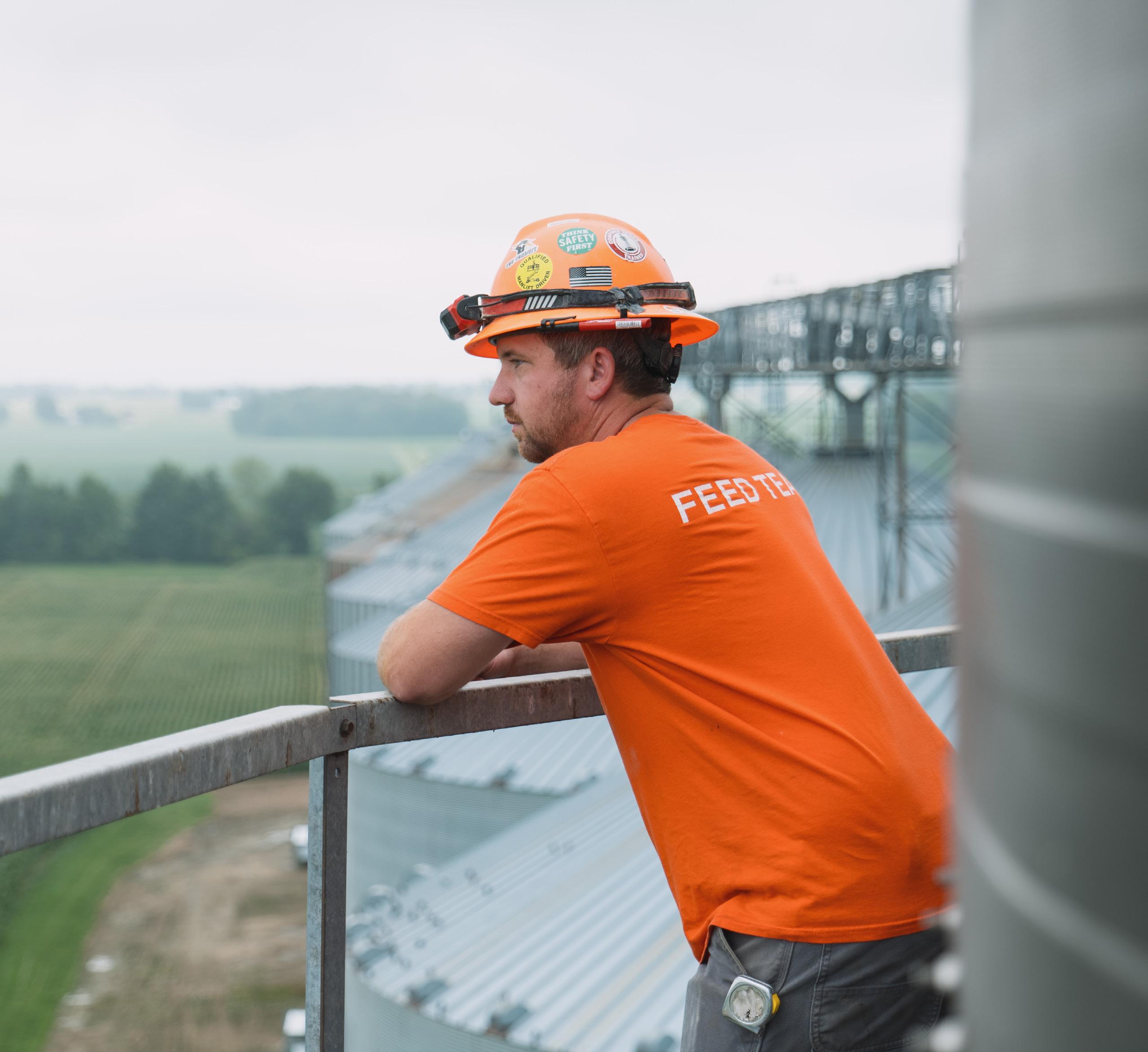

Printed on recycled paper using soy-based ink. www.versova.com
















 JT Dean President
JT Dean President

 Emily Battilega Director of Sustainability
Emily Battilega Director of Sustainability







































 Mike Keefer, Vice President of Grain Merchandising
Mike Keefer, Vice President of Grain Merchandising





 Ashley Singh, Director of Compliance
Ashley Singh, Director of Compliance






 Josh Warkentin, Director of Capital Projects
Josh Warkentin, Director of Capital Projects

 Ross Dean, Senior Vice President of Sales
Ross Dean, Senior Vice President of Sales






